G.A.S. Foundation is thrilled to welcome Avery Youngblood, our first resident supported by the Yale School of Art. A multidisciplinary artist and designer based in New York City, Avery’s practice spans video art, design, print, performance and film. Her rich, introspective work explores themes of identity, language, race, and technology, through a lens that challenges traditional narratives and hierarchies.
During her six-week residency at G.A.S. Lagos, Avery is focusing on the intersection of technology and identity within post-colonial narratives in Lagos. She plans to explore the cultural and communal relevance of vintage technologies like camcorders and CRT TVs, and examine how these tools, despite being outdated, connect the past, present, and future. She hopes to use her time in Nigeria to examine how social class influences the perception and use of these technologies, integrating these insights into her video art practice to contribute to Lagos’ cultural discourse.
Avery is also looking forward to engaging with the local community, collaborating with Lagos-based artists, and immersing herself in the city's dynamic cultural landscape. For her final presentation, she intends to lead a workshop titled "LANGUAGE AS PROCESS::PROCESS AS LANGUAGE" which explores malleable language in communication. By collaging visuals and reflecting on a single word representing their creative practice, she hopes participants will gain deeper insights into their artistic processes through this interactive and reflective exercise.
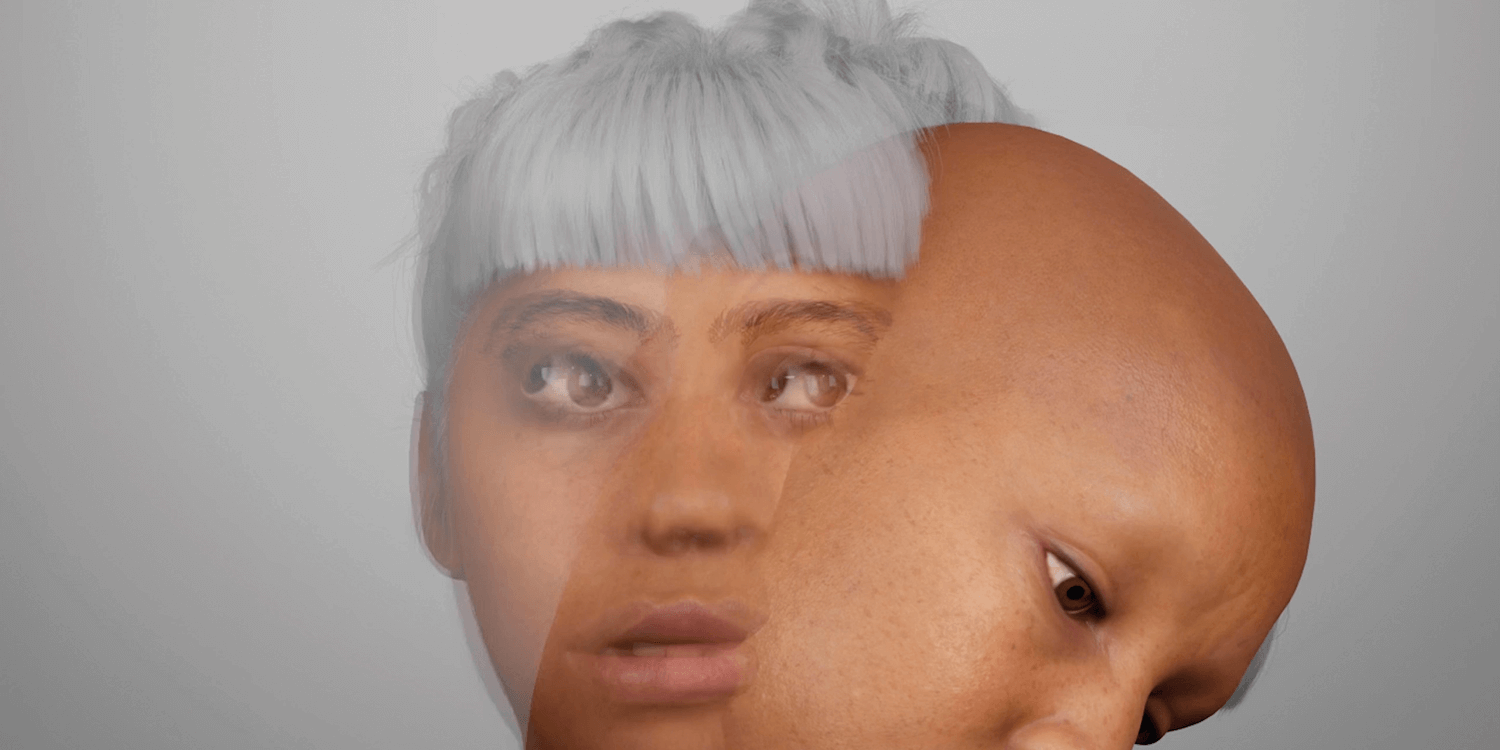 More real than myself, 2022, Image still of video performance. Image courtesy of the artist.
More real than myself, 2022, Image still of video performance. Image courtesy of the artist.
What is the current focus of your creative practice?
As an artist and designer, my practice is a deeply introspective and a self-reflective exploration of language, identity, and the ways in which I position myself in relation to others and the world around me. By questioning the very foundations of linguistic structures and the assumptions I make about the nature of reality, I challenge viewers to consider the complex and multifaceted nature of our existence.
My work is not only an investigation of self and others, but also a commentary on the power dynamics that underlie our interactions with the world. I explore themes such as science fiction, race, and language, highlighting the ways in which these narratives shape our understanding of ourselves and the world around us.
My approach to my work is both metaphorical and multidimensional, using techniques such as layering, collage, repetition, the moving image, and bodily movement to create a visual language that reflects the decentralized and interconnected nature of my thinking. My work is not simply about the concepts I explore, but also about the process of exploration itself.
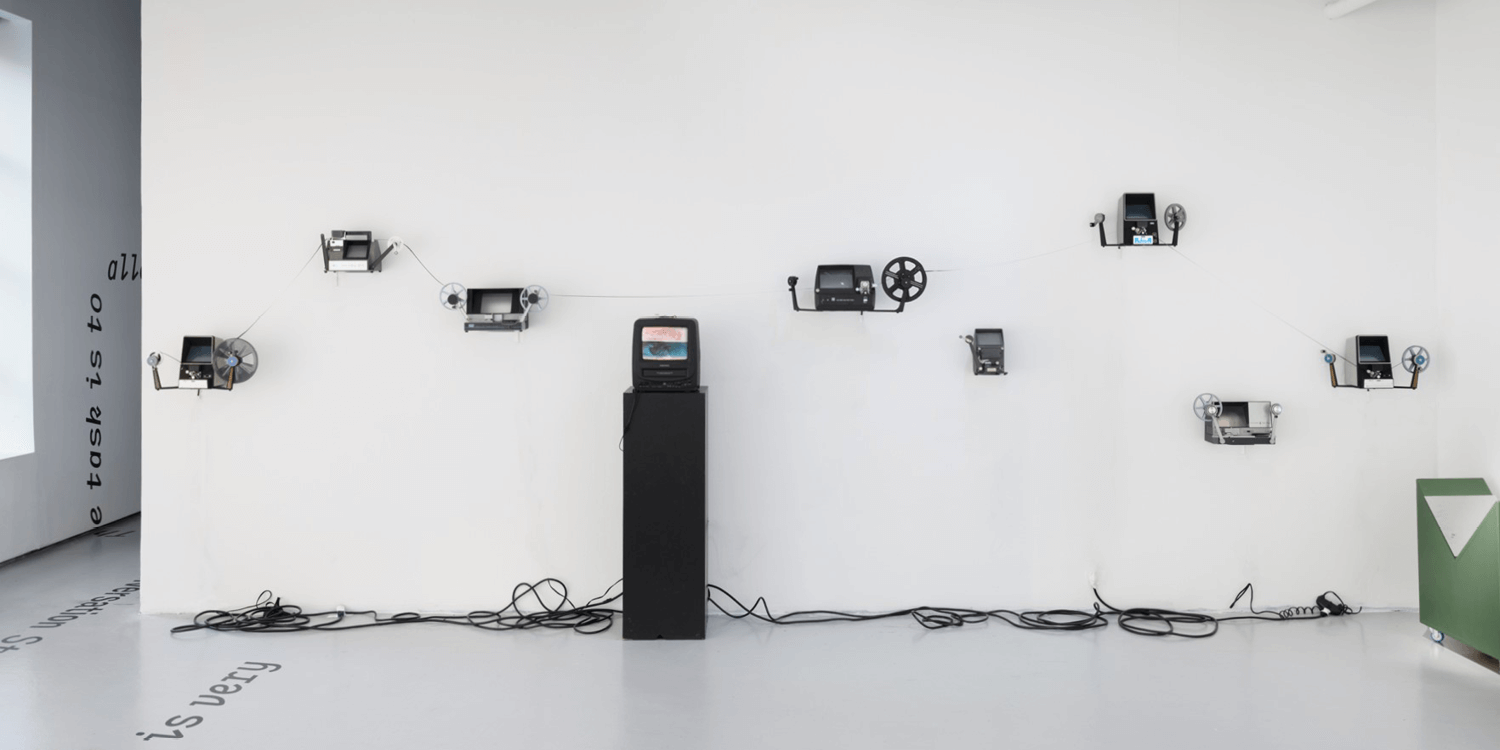
Ultra-sound, 2023, Image still of video installation. Image courtesy of Jackie Furtado.
What drew you to apply for this residency and how do you think it will inform your wider practice?
What drew me to apply for the G.A.S. residency is its mission to foster cultural exchange and support creative practices in ways that challenge traditional hierarchies. The residency’s focus on historical reinterpretation and materiality resonates deeply with my own work, which examines the complexities of Blackness, identity, and language through technology and art. I believe that immersing myself in Lagos—a city with rich cultural and historical significance—will offer new perspectives that will directly inform my exploration of race and technology in post-colonial contexts. By engaging with the local community and environment, I hope to integrate these experiences into my wider practice, evolving my interdisciplinary approach to video-making, while also contributing to the vibrant cultural landscape of Lagos.
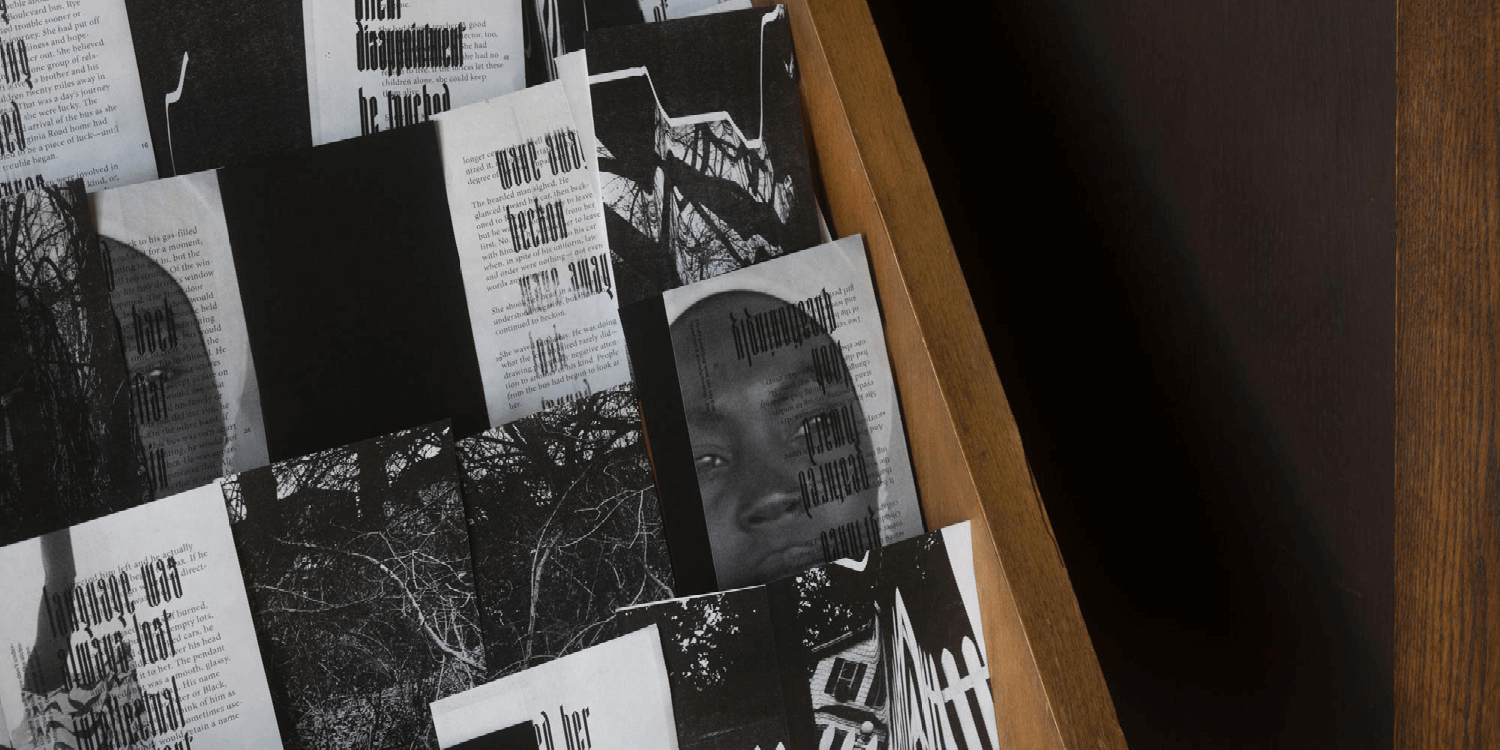 Speech sounds, 2021, A deconstructed publication inspired by Octavia Butler. Image courtesy of Emily Barresi.
Speech sounds, 2021, A deconstructed publication inspired by Octavia Butler. Image courtesy of Emily Barresi.
Can you give us an insight into how you hope to use the opportunity?
At the G.A.S. residency, I hope to use my time to investigate the intersection of identity, technology, and social class within the context of Lagos. I plan to explore "obsolete" technologies—those tools that may no longer be in widespread use but still hold significant cultural and communal value. By engaging with local communities and examining the technological artifacts that remain central to their lives, I aim to uncover the stories these tools tell, as well as their role in connecting the past, present, and future. I intend to remain open in this investigation, allowing for an organic exploration of how both technology and social class shape our understanding of progress, nostalgia, and identity. Through my video art practice, I will reflect on these insights, potentially incorporating them into workshops, while contributing to the cultural discourse in Lagos.
RESIDENCY ARCHIVE
EVENT: Primitive Hypertext
Event Date: 19th December 2024
On December 19th, G.A.S. Lagos hosted Primitive Hypertext, an engaging presentation and hands-on workshop led by then-resident Avery Youngblood. The evening began with an introduction to the Riso machine, a printing tool primarily used for high-volume printing that operates similarly to screen printing, producing vibrant, textured, and slightly imperfect prints. Attendees observed the intricate process of testing and refining prints, providing a fascinating prelude to the evening's discussions on communal language-making.
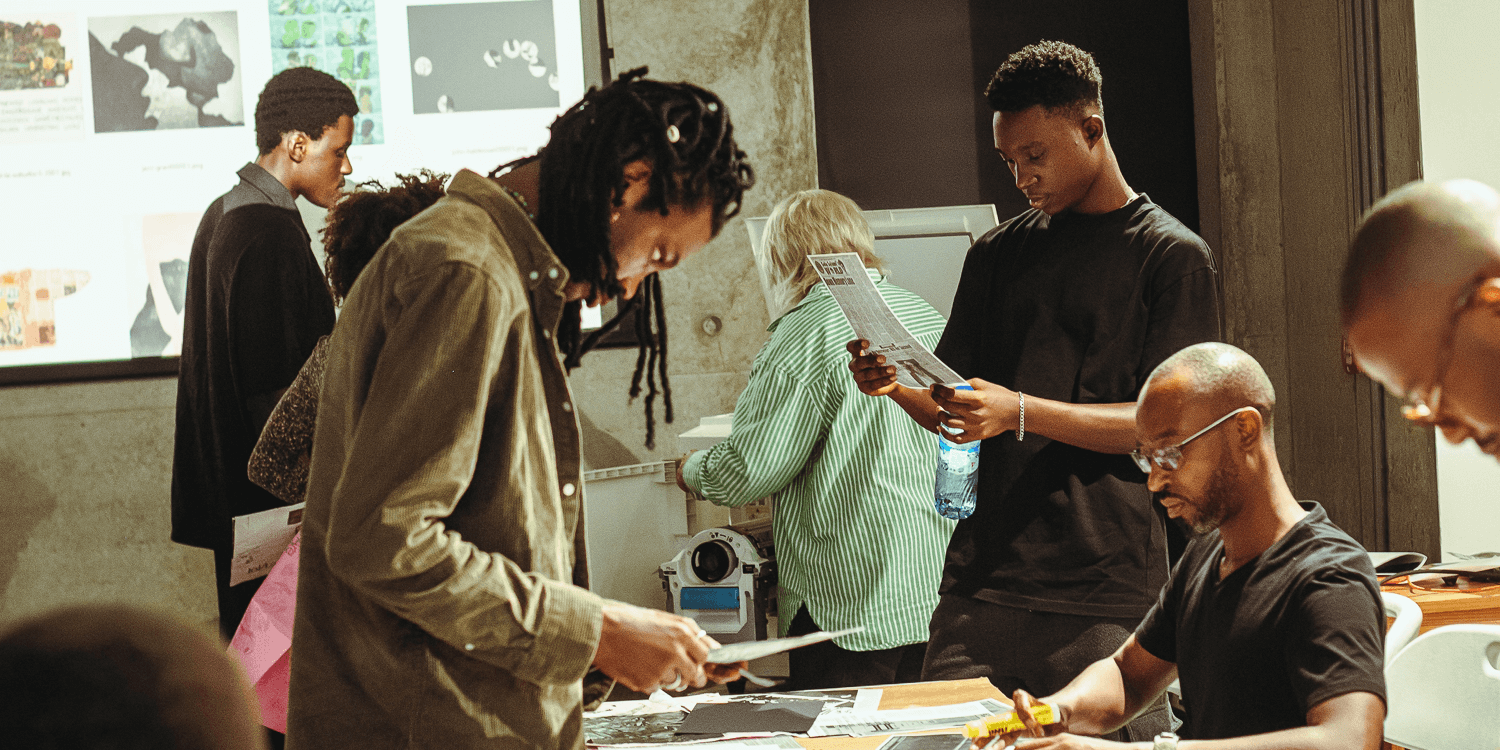 Participants engaging in the hands-on printing workshop led by Avery Youngblood at Primitive Hypertext.
Participants engaging in the hands-on printing workshop led by Avery Youngblood at Primitive Hypertext.
ABOUT AVERY YOUNGBLOOD
AVERY YOUNGBLOOD is a video-artist and designer from Dallas, Texas. She has a background in linguistics and comparative studies in race and ethnicity from Stanford University (BA), and works alongside the moving image to explore themes of science fiction, myth, language, identity, and race.
She is also a Yale School of Art MFA graduate in Graphic Design where she collaborated across disciplines of sculpture, performance, filmmaking, and design. Her work is both metaphorical, sensorial and multi-dimensional, using techniques such as layering, collage, repetition, the moving image, audio, and the body to create a visual language that reflects the decentralized and interconnected nature of her thinking.
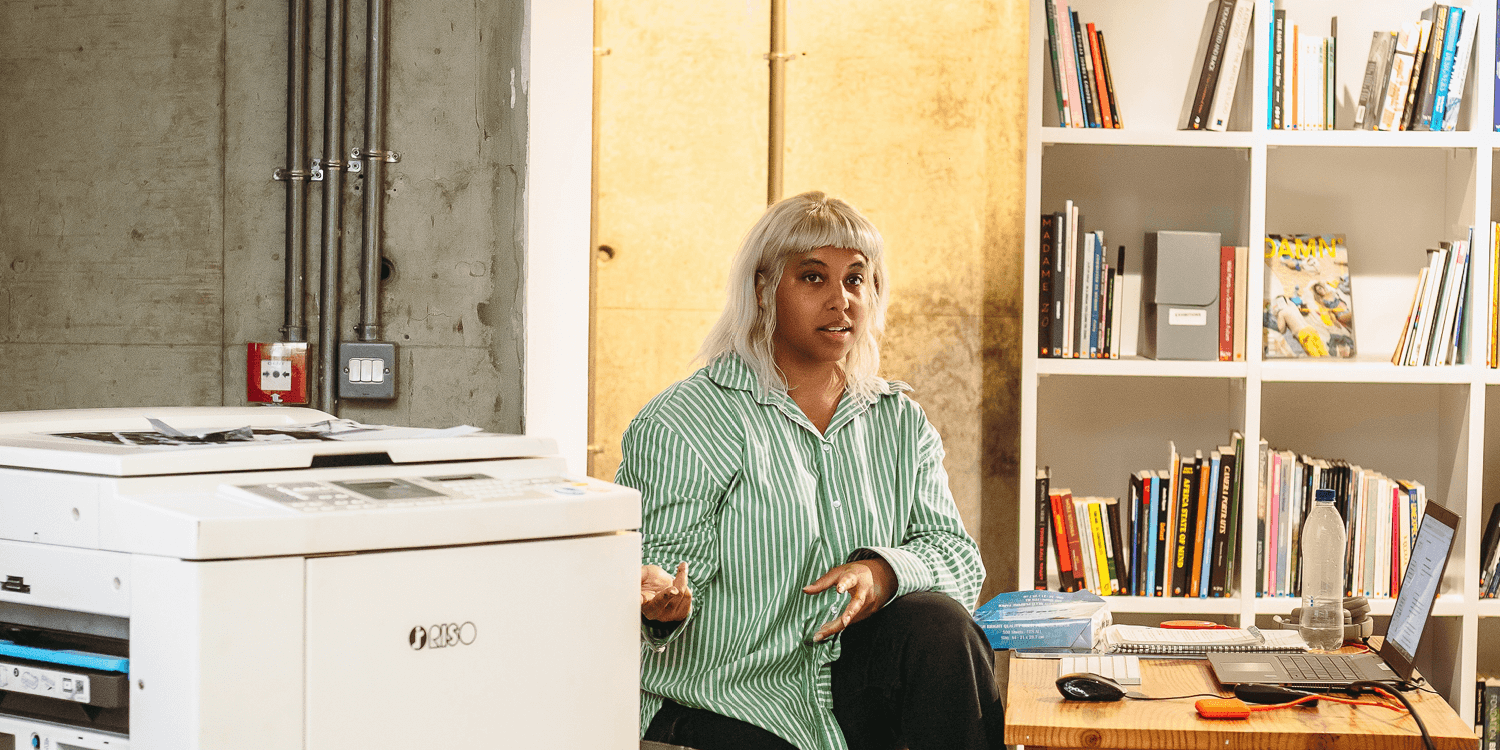
Avery's residency is generously supported by the Yale School of Art.
